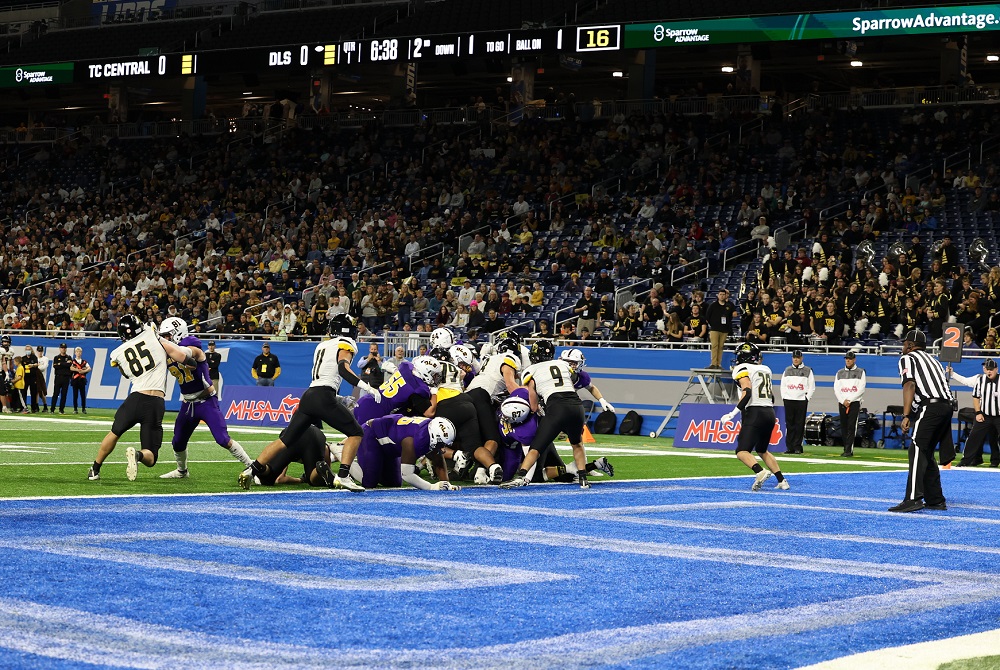
Be the Referee: Point After Touchdown
October 20, 2016
This week, MHSAA assistant director Mark Uyl explains how high school rules differ from those used by colleges when it comes to what's allowed after extra-point tries.
Be The Referee is a series of short messages designed to help educate people on the rules of different sports, to help them better understand the art of officiating, and to recruit officials.
Below is this week's segment – Point After Touchdown - Listen
For many years at the pro and college levels of football, the P-A-T or the extra point kick, really became a ho-hum play.
Last year in the NFL, they tried to make the play more exciting by moving the kickers back, making it almost the distance of a medium-range field goal.
Under college rules, they allow the other team – the defense, whenever they get the ball – to try to return it all the way to the other end with the ability to score two points.
The next high school game you’re at, know this: that once the defensive team gets possession of the ball on an extra point or try for point, the try is over and the defense cannot score any points.
Past editions
Oct. 13: Untimed Down - Listen
Oct. 6: Soccer Penalty Kick Change - Listen
Sept. 29: Preparation for Officials - Listen
Sept 22: You Make the Call: Returning Kickoffs - Listen
Sept. 15: Concussions - Listen
Sept 8: Equipment Covering the Knees - Listen
Sept. 1: Play Clock Experiment - Listen
Aug. 25: Clipping in the Free Blocking Zone - Listen

Be The Referee: Play Clock
By
Sam Davis
MHSAA Director of Officials
August 30, 2022
Be The Referee is a series of short messages designed to help educate people on the rules of different sports, to help them better understand the art of officiating, and to recruit officials.
Below is this week's segment – Play Clock - Listen
There’s a new rule in football this year that provides the offense more time to draw up a play and prepare matchups when the defense commits a foul.
In the past, if the defense committed a foul, the play clock would be set to 25 seconds, potentially changing the approach by the offense entirely.
Under the change, when the defense or receiving team commits a foul, the play clock will start at 40 seconds, giving the offense an extra 15 seconds to prepare their scheme for the next play.
For all other administrative stoppages, including fouls against the offense or kicking team, the play clock will be set to 25 seconds when play resumes.
Previous Editions:
Aug. 23: Intentional Grounding Change - Listen

